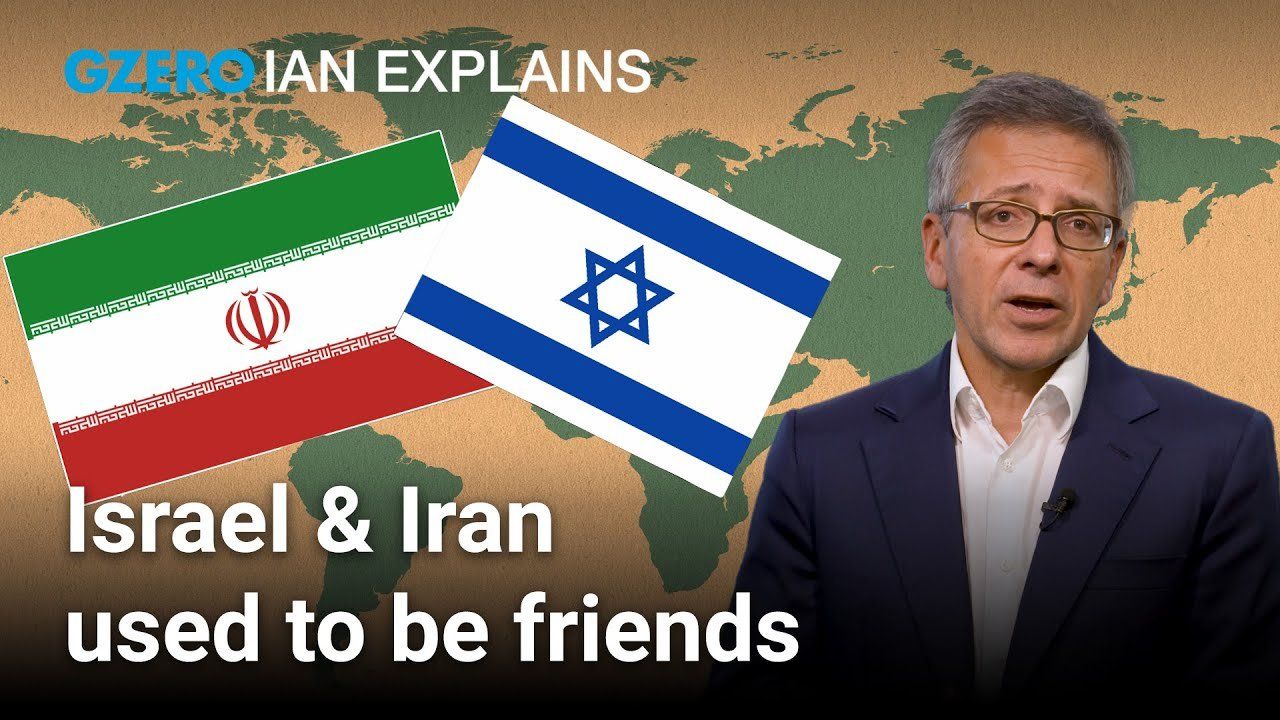
Fun fact: Israel and Iran used to be friends…sort of.
Israel and Iran's complex relationship in the Middle East has seen dramatic shifts, to say the least, Ian Bremmer explains on GZERO World. Iran, as with most of the rest of the Middle East, originally opposed the creation of Israel in 1948 and its UN membership in 1949. But Israel, Iran and Turkey's shared interests as non-Arab states in the region led to covert trade relationships and an intelligence-sharing program codenamed 'Trident Alliance' from 1956 to 1979.
The Iranian Revolution in 1979, however, led to a staunchly anti-Zionist regime in Tehran. In 2023, the major concern is Iran's influence, particularly through Hezbollah in southern Lebanon, which possesses a formidable missile arsenal dwarfing that of Hamas. Iran's proxies, like the Houthi militias in Yemen, have been targeting US assets, resulting in the redirection of the US military in the region and even airstrikes in Eastern Syria.
But there’s a big difference between skirmishes with Iran proxy forces and an all-out US-Israel-Iran war. And given Iran’s nuclear ambitions, that’s something that absolutely no-one, including the Ayatollah in Tehran, wants.
Catch GZERO World with Ian Bremmer every week at gzeromedia.com/gzeroworld or on US public television. Check local listings.
- US braces for Iran-backed blowback ›
- Iran’s leaders are asking for trouble ›
- Israel at war: How will regional actors respond? ›
- Why Israel now supports an Iran nuclear deal ›
- Israel, Iran, and the metastasizing war in Ukraine ›
- Podcast: Iran's role in the Gaza war: is escalation inevitable? - GZERO Media ›
- What’s Iran’s next move? - GZERO Media ›
- Israel control in Gaza: No end in sight - GZERO Media ›
- Ian Explains: Why Israeli-Palestinian peace talks at Camp David came close but failed in 2020 - GZERO Media ›
- US-Iran tensions complicate Biden's Middle East strategy - GZERO Media ›